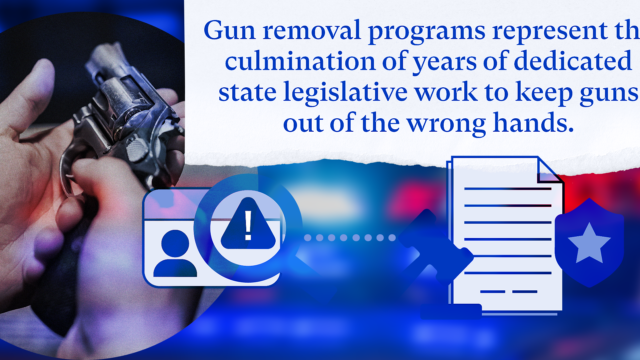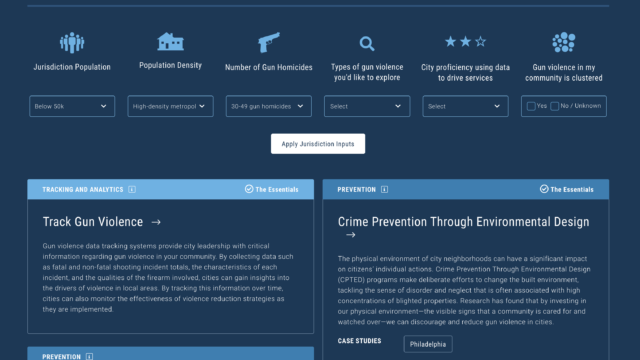Alert Local Law Enforcement of Failed Background Checks
Alert Local Law Enforcement of Failed Background Checks
What does this solve?
The National Instant Criminal Background Check System (NICS) stops thousands of convicted felons, domestic abusers, and other prohibited people from buying guns each year. Potential purchasers often fail NICS background checks and walk away with no consequences, free to try to arm themselves in other ways.
NICS denial laws, also known as “active alerts,” require state law enforcement or firearm dealers to notify local law enforcement when a person prohibited by law from purchasing firearms tries to buy a gun and fails the background check. This enables law enforcement to stop them before they obtain guns illegally.
How it Works
Alerting law enforcement when a person fails a background check helps prevent that person from obtaining a gun through other illegal means.
It is unlawful for a person who is prohibited from buying a gun to attempt to purchase one. NICS stops thousands of people prohibited from having firearms from buying them every year. But these “lie-and-try” offenses are rarely prosecuted, and local law enforcement often doesn’t know when a prohibited, and potentially dangerous, person tries to buy a gun.
Several states have addressed this loophole in their law, requiring law enforcement to be notified when a person fails a NICS check. Alerting local law enforcement enables police to stop people from obtaining guns illegally through unlicensed sales or other means. States that have these reporting requirements have seen success. For example, Pennsylvania’s active alerts program has resulted in nearly 5,000 reported convictions of people attempting to illegally purchase guns.
By the numbers
30%
A study commissioned by the U.S. Department of Justice found that 30 percent of people who failed criminal background checks while attempting to purchase firearms over the course of a year were rearrested within five years.
5k
Pennsylvania’s active alerts program has resulted in over 5,000 convictions of people attempting to purchase guns illegally since 1999.
Myth & Fact
Myth
States have no role in enforcing the federal background check requirement to purchase a firearm.
Fact
States can and do enforce federal background check requirements. In fact, even in states that do not require law enforcement notification of failed checks, prosecutors sometimes charge people with violating state laws prohibiting lying on government forms when they find out that a person who is prohibited from possessing a firearm under state or federal law attempted to purchase one from a licensed dealer.
Featured Resources

Undeniable: How Long-Standing Loopholes in the Background Check System Have Been Exacerbated by COVID-19
Loopholes must be addressed to ensure that guns are not sold without a completed background check.

Update Background Check Laws
Updating federal and state laws to require background checks on all gun sales is a common-sense way to keep guns out of the wrong hands.

Guns and Violence Against Women: America’s Uniquely Lethal Intimate Partner Violence Problem
Laws keeping guns out of the hands of abusers are associated with lower rates of violence against women and intimate partner homicides.
All Resources
Alert Local Law Enforcement of Failed Background Checks
All Resources
The Smoking Gun
An online resource committed to exposing the gun industry’s role in our gun violence epidemic today.
Everytown Research & PolicyAt the Forefront of Gun Safety: Removing Illegal Guns
While gun violence continues to spike across the country, illegal gun removal programs provide real hope about progress on new solutions.
Policy Paper
The Danger of No-Questions-Asked Gun Sales Between Strangers
These stories are examples of tragedies that could have been prevented if a background check was required when the shooter bought their gun.
Fact SheetCity Gun Violence Reduction Insight Portal
CityGRIP is an online clearinghouse of data-informed gun violence reduction strategies.
Data Tracker
Fatal Gaps
More than ten years after the Virginia Tech shooting, progress in closing the gaps in state mental health records submissions is evident in several…
Report
